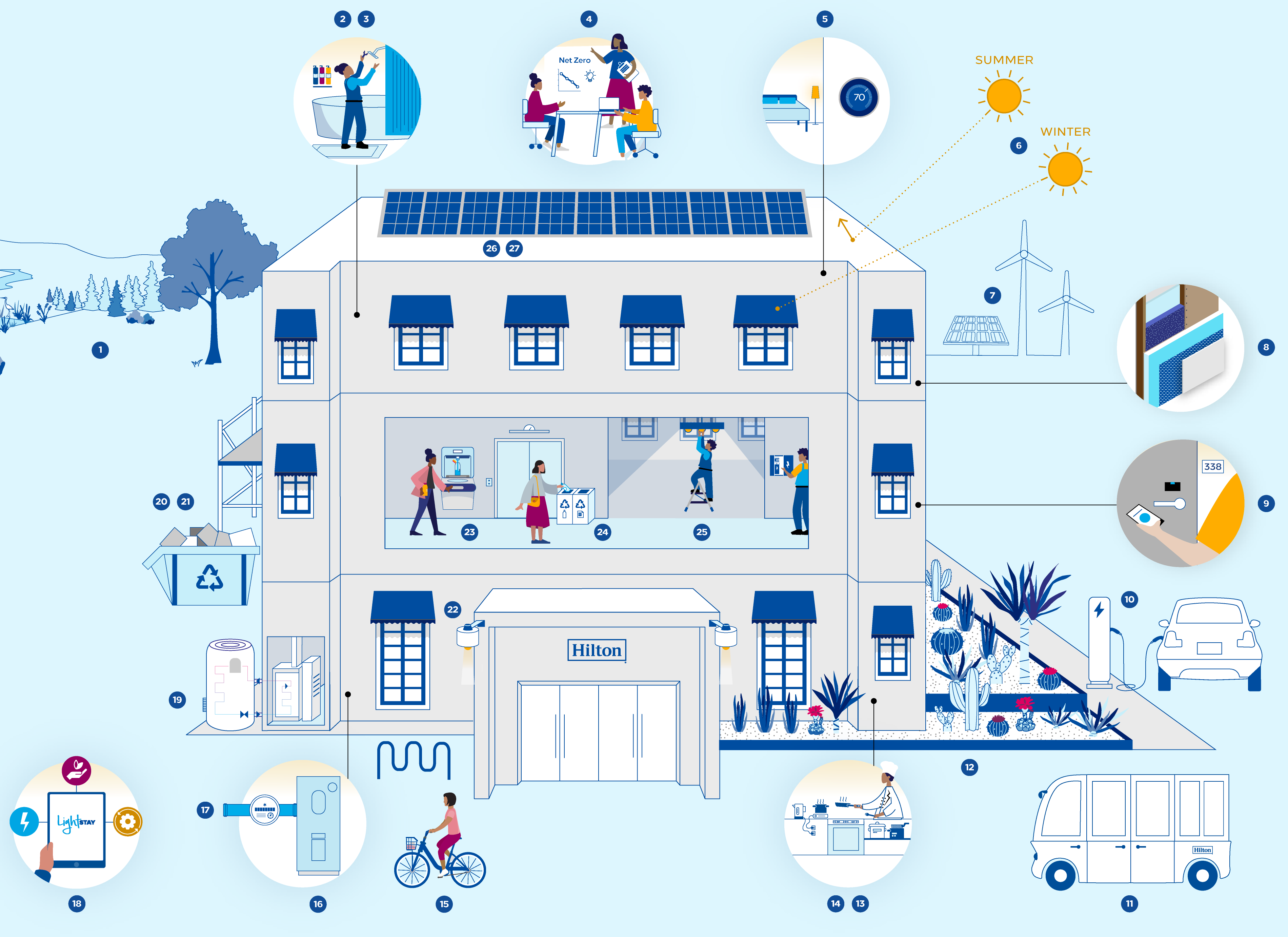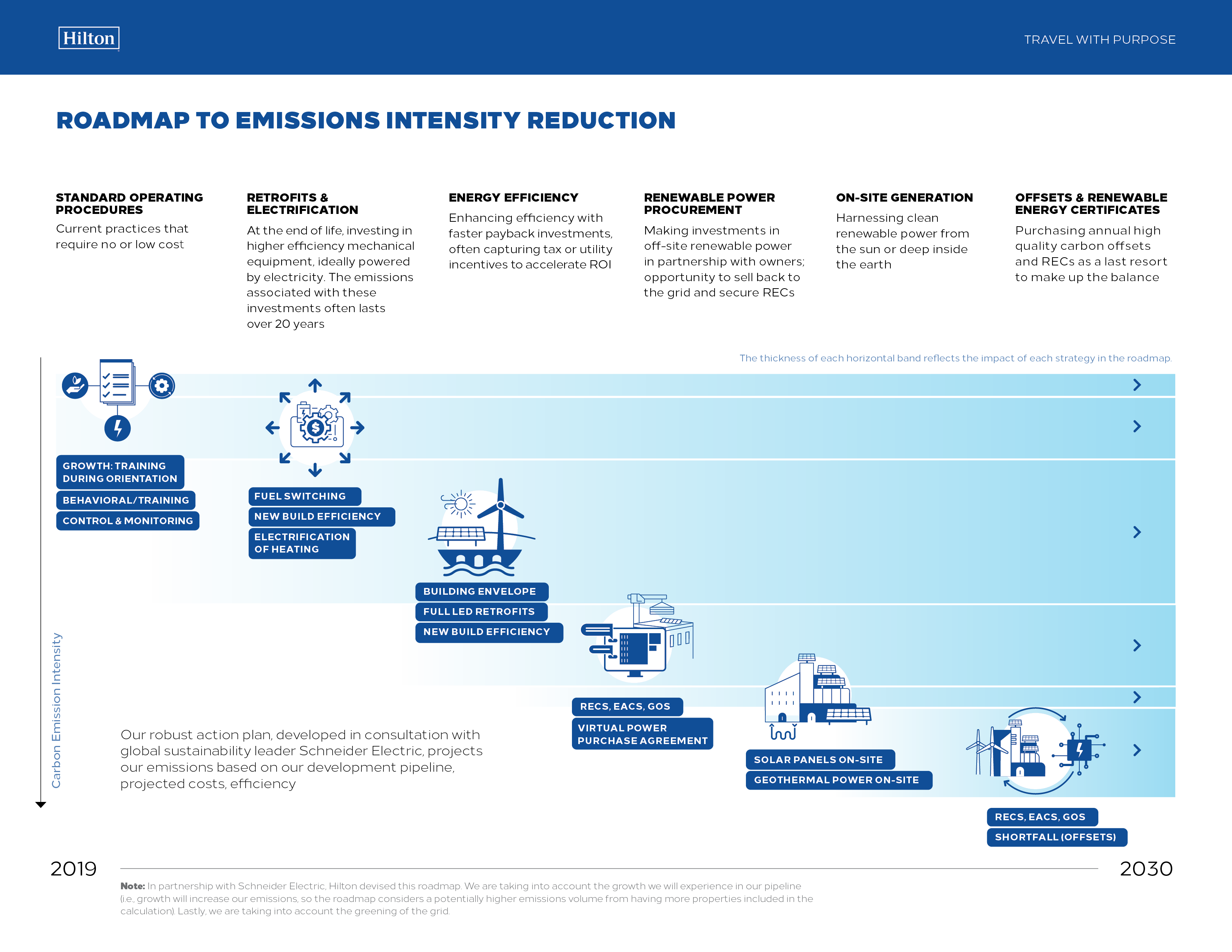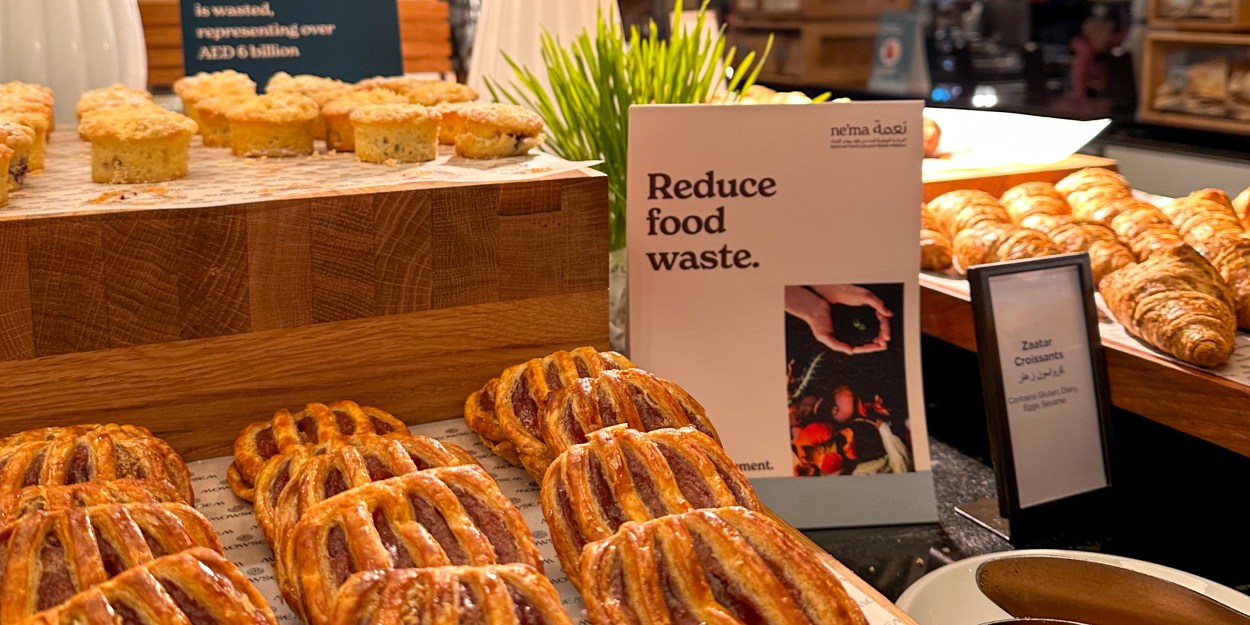Environmental Impact
Through climate action and destination stewardship, we are building a more sustainable future for the global travel and tourism industry.
PROTECTING AND PRESERVING THE DESTINATIONS WHERE WE OPERATE
Climate change poses a critical threat to our planet and an important challenge to the resiliency of the travel and tourism industry. At Hilton, we’ve made mitigating the environmental impact of our operations a high priority, as we know it is crucial to build and operate sustainable, efficient hotels and to serve as good stewards of the beautiful destinations where we operate. We strive every day to meet the expectations of the growing number of purpose-driven consumers who value sustainable and conscientious travel. To learn more about our approach to climate action and destination stewardship, please click below.
BUILDING AND OPERATING SUSTAINABLE “GREEN” HOTELS
Our owners and developers are critical partners in the advancement of a more sustainable future for the hospitality industry. Hilton developed Sustainable Design Checklists for these partners to support informed decisions on sustainability. Here are some examples of opportunities during design, construction, renovation, and conversion to incorporate energy efficiency and sustainable attributes in our hotels.

Sustainability Strategies
- Consider site selection to reduce biodiversity risk.
- Reduce single use plastics.
- Install water efficient fixtures.
- Develop a building operations plan to ensure efficient operations and effective maintenance.
- Install guest room networked, intelligent thermostats.
- Reduce heating and cooling loads with passive solar strategies.
- Purchase offsite clean energy from solar and wind farms.
- Design to a high-performance building envelope.
- Utilize Digital Key.
- Install EV charging stations.
- Use electric vehicles for shuttle service.
- Select native and/or adapted vegetation in landscaping.
- Install or upgrade to energy efficient appliances in guest rooms and back of house at equipment end of life.
- Install electric kitchen equipment at equipment end of life.
- Install bike racks.
- Install heat pumps for heating and cooling at equipment end of life.
- Meter water use.
- Track and monitor energy, water and waste performance in LightStay.
- Install heat pumps for hot water at equipment end of life.
- Incorporate local and regional materials and materials with recycled content.
- Recycle and compost waste.
- Utilize photocell light sensors on exterior lights.
- Provide water refilling stations.
- Provide recycling bins.
- Install LED lighting.
- Install solar panels.
- Utilize solar water heating.
ROADMAP TO EMISSIONS INTENSITY REDUCTION
Our phased implementation strategy to reduce our emissions begins with operational shifts that require limited resources to implement, followed by investments in high-impact energy efficiency projects. In the next stage, we work toward off-site renewable energy procurement and end-of-life equipment replacement, as well as high-efficiency retrofits and electrification measures. The final phases of the roadmap focus on on-site renewable electricity generation and, as a last step, the purchase of renewable energy certificates (RECs) and carbon offsets for any remaining unavoidable emissions. This waterfall approach enables Hilton to make informed decisions and has helped us chart the path to achieving our emissions intensity reduction of 75% for managed properties and 56% across our franchised portfolio by 2030.

DRIVING ENERGY EFFICIENCY AND DECARBONIZATION
Hilton was the first major hospitality company to set science-based targets to reduce our greenhouse gas emissions in line with climate science. In 2022, we undertook a rigorous process to evaluate our existing targets, assess our current and projected greenhouse gas inventory, and align the data to the latest methodology from the Science Based Targets initiative (SBTi). This allowed us to set new, enhanced targets grounded in the realities of the latest climate science.
DRIVING WATER STEWARDSHIP ACROSS OUR OPERATIONS
Good water stewardship is essential to protecting and preserving this increasingly scarce natural resource. We work closely with our hotels, our suppliers and our community partners to reduce water consumption across our global operations and improve water availability and quality in communities facing water risks around the world.
PRIORITIZING WASTE REDUCTION IN OUR VALUE CHAIN
We are continuously looking for opportunities to reduce unnecessary waste in our operations and supply chain. Food waste reduction, recycling and the removal of single-use plastics are all important efforts to reach our 2030 Goals and to create a more sustainable hospitality industry.




